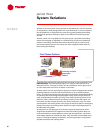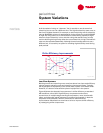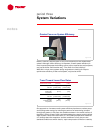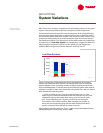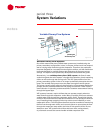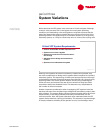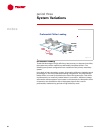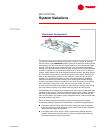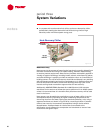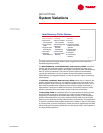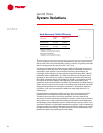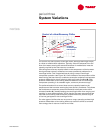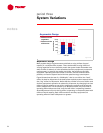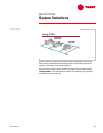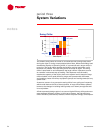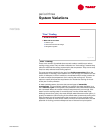
68 TRG-TRC016-EN
notes
period three
System Variations
n In a system with an alternative-fuel chiller, such as an absorption chiller,
preferentially loading the alternative-fuel chiller during times of high
electricity costs minimizes system energy cost.
Heat Recovery
Heat recovery is the process of capturing the heat that is normally rejected from
the chiller condenser and using it for space heating, domestic water heating,
or another process requirement. Heat recovery has been successfully applied in
virtually all types of buildings, including hotels, schools, manufacturing plants,
and office buildings. It typically provides an attractive return on investment for
building owners. The use of heat recovery should be considered in any building
with simultaneous heating and cooling requirements, or in facilities where the
heat can be stored and used at a later time. Buildings with high year-round
internal cooling loads are excellent opportunities for heat recovery.
Additionally, ASHRAE/IESNA Standard 90.1–1999 (Section 6.3.2) includes
restrictions on the amount of reheat that can be performed in an HVAC system
unless it is recovered heat. It is therefore likely that heat recovery will be used
more in the future.
Heat recovery can be applied to practically any type of water chiller. It can be
accomplished either by operating at higher condensing temperatures and
recovering heat from the water leaving the standard condenser, or by using a
separate condenser, as shown in Figure 76 for a centrifugal chiller. In smaller
chillers, heat recovery is sometimes accomplished using a device called a
desuperheater. A desuperheater is a device that is connected to the
refrigeration circuit between the compressor and condenser to recover heat
from the hot refrigerant vapor.
Heat-Recovery Chiller
heat
heat
-
-
recovery
recovery
condenser
condenser
standard
standard
condenser
condenser
evaporator
evaporator
Figure 76



